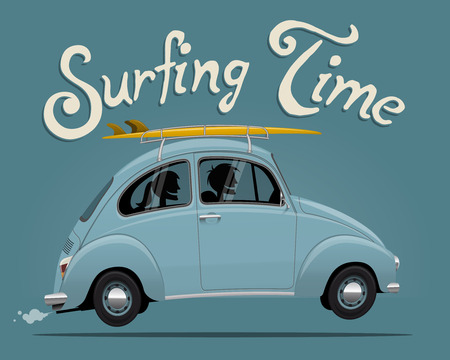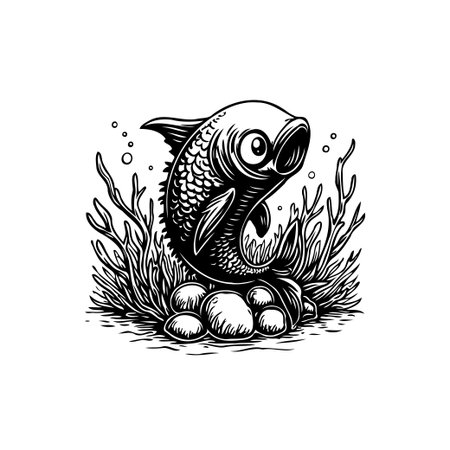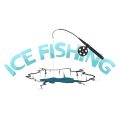1. Planning Your Carp Fishing Adventure
Kicking off your ultimate weekend carp fishing road trip across England starts with solid planning. To make the most out of your adventure, it’s crucial to map out the journey and ensure you’re hitting some of the country’s top carp waters. Begin by researching renowned fisheries—think Linear Fisheries in Oxfordshire, Walthamstow Reservoirs in London, or Todber Manor in Dorset. Take into account travel times between venues and create a flexible itinerary that allows for spontaneous stops at local tackle shops or scenic spots.
Selecting Top Carp Fishing Spots
England is dotted with legendary carp lakes, each offering a unique angling experience. Factor in accessibility, on-site facilities, and stock levels when choosing your locations. Online forums, local angling groups, and catch reports can provide up-to-date insights to help you decide where to cast your rods.
Essential Kit List
Your kit list should be comprehensive but practical for a weekend on the road. Essentials include: quality carp rods and reels, landing net, unhooking mat, bite alarms, bivvy or shelter, warm clothing (the British weather can turn quickly!), head torch, cooking gear, and enough bait for various conditions. Don’t forget power banks for your gadgets and waterproofs just in case.
Understanding UK Fishing Regulations
Before setting off, familiarise yourself with UK fishing regulations. A valid Environment Agency rod licence is required for coarse fishing in England, which you can purchase online or at a Post Office. Check venue-specific rules regarding bait types, barbless hooks, and catch-and-release policies. Respecting these guidelines not only protects the fisheries but ensures you avoid hefty fines.
Pro Tip
Download local fishery maps and save contact numbers for bailiffs or site managers—you never know when you’ll need a bit of local advice or emergency assistance during your road trip.
Hitting the Road: Navigating England’s Iconic Routes
Embarking on the ultimate weekend carp fishing road trip means more than just casting your line; it’s about soaking up England’s best scenery while hopping between world-class fisheries. Here’s how to plan your journey, connect the top spots, and avoid those notorious traffic bottlenecks – all in true British style.
Mapping Your Carp Fishing Adventure
The key to a successful road trip is linking famous carp fisheries with enjoyable travel. Start in the South at Linear Fisheries in Oxfordshire, renowned for its specimen lakes. Head north via the M40 and M6 to reach Cheshire’s Tatton Park, and finish your weekend at Bluebell Lakes in Northamptonshire on your return journey.
| Fisheries | Main Route | Estimated Drive Time | Recommended Scenic Stop |
|---|---|---|---|
| Linear Fisheries (Oxfordshire) | M40 Northbound | — | Cotswolds villages (Burford, Stow-on-the-Wold) |
| Tatton Park (Cheshire) | M6 Northbound | 2 hrs 30 mins | Peak District National Park detour |
| Bluebell Lakes (Northamptonshire) | A50, then A1 Southbound | 2 hrs 15 mins | Stamford market town stroll |
Travel Tips for a Smooth Journey
- Avoiding Congestion: Depart early on Saturday morning or after the Friday rush hour. Use real-time apps like Google Maps or Waze for live traffic updates and alternate routes.
- Pit Stops: Plan breaks at motorway services such as Cherwell Valley Services (M40) or Knutsford Services (M6), but don’t miss out on classic British tearooms in nearby villages for a proper cuppa.
- Toll Roads: The M6 Toll can save you time skirting around Birmingham – keep some change or a contactless card handy.
Making the Most of England’s Scenic Byways
If time allows, trade a bit of speed for beauty. Divert onto the A-roads through the Cotswolds or Peak District for rolling hills and charming pubs. These rural drives give you a real taste of English countryside life, perfect for stretching your legs or grabbing some local grub between sessions on the bank.
Navigational Essentials
- Pack an updated satnav or offline maps – mobile signal can be patchy in remote areas.
- Brush up on UK driving rules: speed limits vary, and watch for average speed cameras on motorways.
Your road trip isn’t just about reaching each fishery; it’s about enjoying every mile across England’s iconic landscapes. With a solid route and these savvy travel tips, you’ll arrive fresh and ready for action at every stop along your ultimate carp fishing adventure.

3. Tactics and Bait: Local Wisdom for English Carp
When embarking on the ultimate weekend carp fishing road trip across England, understanding local tactics and bait preferences is crucial for success. English carp are renowned for their wariness and intelligence, meaning a one-size-fits-all approach rarely delivers consistent results. Here’s a practical breakdown of tried-and-tested British carp fishing techniques, essential bait recommendations, and how to adapt your methods to the diverse waters you’ll encounter from north to south.
Proven British Carp Fishing Techniques
The foundations of successful carp angling in England rest on classic methods such as ledgering with hair rigs, zig rigs for targeting mid-water feeders, and surface fishing during warmer months. Ledgering remains the go-to method for most lakes and rivers, allowing precise placement of baits near feeding spots. On pressured venues where carp have seen it all, a subtle presentation like a chod rig or solid PVA bag can make all the difference. Always keep a marker rod handy to find underwater features – gravel bars and silt pockets are prime holding areas for English carp.
Bait Recommendations from Local Experts
Bait choice is where local knowledge truly shines. In England, boilies are king – especially flavours like scopex, sweetcorn, and fishmeal blends. Don’t overlook traditional favourites such as luncheon meat, tiger nuts (where permitted), and bread for surface cruising carp. For natural approaches, maggots and worms still work wonders on smaller, less pressured waters. A top tip: chat with bailiffs or regulars at each venue; they often know which colour or flavour is producing bites that week.
Adapting Methods to Different English Waters
From crystal-clear southern gravel pits to northern estate lakes shrouded in reeds, adaptability is your secret weapon. In heavily fished club waters, scale down hook sizes and use lighter lines for wary fish. On wild rivers or underfished reservoirs, larger hookbaits and strong tackle are needed to handle hard-fighting specimens. Always adjust your feeding strategy: heavy baiting draws shoals on large lakes, while single hookbaits excel on intimate pools. The weather matters too – switch to high-visibility pop-ups after rain or when water colours up. By blending these homegrown tactics with local advice at every stop, you’ll maximise your chances throughout your English road trip adventure.
Pubs, Grub, and Angler’s Hospitality
No true British carp fishing road trip is complete without sampling the local food and soaking in the warm hospitality that England’s angling communities are famous for. As you travel from one renowned carp lake to another, you’ll quickly discover that traditional English pubs and lakeside eateries are as much a part of the experience as landing a personal best.
Traditional English Pubs: More Than Just a Pint
After a long day by the water, nothing beats stepping into a cosy countryside pub. Many local pubs near fishing hotspots serve up hearty classics like steak and ale pie, fish and chips, or a Sunday roast—perfect for refuelling after battling big carp. Here’s a quick guide to common pub fare you might encounter:
| Dish | Description |
|---|---|
| Steak & Ale Pie | Tender beef in rich ale gravy, encased in golden pastry |
| Fish & Chips | Battered cod served with chunky chips and mushy peas |
| Bangers & Mash | Sausages on creamy mash with onion gravy |
| Ploughman’s Lunch | Cheese, pickles, bread, and salad—a classic cold plate |
Lakeside Eateries: Quick Bites for Hungry Anglers
Many popular fisheries feature their own on-site cafés or food trucks offering full English breakfasts at dawn or bacon butties (sandwiches) to keep your energy up. These spots often become informal hubs where anglers share stories over a cuppa or debate which bait works best.
Camaraderie Among Local Anglers
The culture of friendliness and support among UK anglers is legendary. Whether you’re an old hand or new to the scene, expect to be greeted with nods, tips about swim selection, or even offers of tea from neighbouring bivvies. It’s not uncommon to strike up lifelong friendships on the bank over shared triumphs (and tales of “the one that got away”). Many venues foster this spirit through organised social events or charity matches. Here’s what to expect:
| Social Event | Typical Activities |
|---|---|
| Charity Matches | Fundraising competitions with prizes and raffles |
| Bivvy Socials | Evening gatherings with BBQs and music lakeside |
| Tackle Swaps | Informal exchanges of gear and advice among anglers |
Top Tip:
If you want to blend in like a local, always return borrowed tackle promptly, buy a round at the pub if invited, and never leave litter behind—it’s all part of the unwritten code of English angling hospitality.
5. Essential Etiquette and Conservation Practices
Understanding the Unspoken Rules of English Fisheries
When embarking on your ultimate weekend carp fishing road trip across England, knowing and respecting the unspoken rules of local fisheries is just as crucial as mastering your angling technique. Each fishery may have its own regulations, but some etiquette is universal throughout England. For instance, always greet fellow anglers with a polite nod or a quiet “alright mate?”—a small gesture that goes a long way in British fishing circles. Never encroach on another angler’s swim; personal space is highly respected, and setting up too close can be seen as poor form. Always check in at the fishery office or with the bailiff upon arrival and adhere to posted rules regarding bait types, landing nets, and catch limits.
Respecting Nature and Local Wildlife
English fisheries are often set within stunning natural landscapes, home not only to prized carp but also to diverse wildlife. As part of the local culture, anglers take pride in leaving their swims cleaner than they found them. Always bag up any litter—including discarded line or bait packaging—and dispose of it properly. Keep noise levels down; loud conversations or music are frowned upon, especially during early mornings or late evenings when the water is calmest and nature is most active. Be mindful of nesting birds along the banks, particularly during spring and summer, and avoid disturbing their habitats.
Engaging in Sustainable Carp Fishing
Barbless Hooks and Safe Handling
Sustainable carp fishing in England revolves around fish welfare. Most reputable venues require barbless hooks to minimise injury to carp. Use a large, padded unhooking mat and wet your hands before handling fish to protect their delicate slime coats. Take photos quickly and return your catch gently—never keep carp out of water for longer than necessary.
Responsible Baiting Practices
Excessive baiting can harm both water quality and fish health. Stick to moderation: use just enough bait to attract carp without overloading the ecosystem. Many fisheries have specific guidelines on particle baits and groundbaits; always follow these to support local conservation efforts.
Supporting Fishery Management
Your day ticket fees often help fund habitat improvements, restocking programmes, and anti-poaching initiatives. Respect all rules about rod licenses—every angler over 13 must hold an Environment Agency rod licence, which supports nationwide conservation projects.
Cultivating Community Spirit
The camaraderie among English carp anglers is one of the sport’s greatest joys. Share tips when asked, offer a helping hand if you see someone struggling with a big catch, and always thank staff for their hard work. By following these essential etiquette points and sustainable practices, you’ll not only enjoy better fishing but also contribute to preserving England’s iconic waters for generations to come.
6. Making the Most of Your Catch: Memories Beyond the Session
Tips on Photographing Your Carp Like a Pro
After a successful session on your weekend road trip, capturing that triumphant moment with your carp is essential. In England, anglers take pride in both the size and health of their catch. Ensure your hands are wet before handling the fish to protect its slime coat, and always support the carp’s body with two hands when lifting for photos. Try to keep the fish low above a padded unhooking mat—this is not just best practice, but also expected etiquette at British fisheries. Early morning or late afternoon light offers the best natural conditions for photos. If you’re fishing solo, set up your phone or camera on a tripod and use a timer or remote shutter. Remember, quick snaps are key—return your catch to water as soon as possible to minimise stress.
Sharing Your Story With Local Communities
Carp fishing in England is more than a solitary pursuit—it’s a social tradition. Many lakes have their own notice boards, WhatsApp groups, or Facebook pages where anglers share stories and photos. Don’t hesitate to chat with locals at tackle shops or during tea breaks at the lakeside; sharing experiences can lead to valuable tips about local hotspots and sometimes even lifelong friendships. When posting online, include details like bait choice, location (if allowed), and weather conditions—these specifics are highly valued by British anglers keen on learning from each other’s successes and near-misses.
Responsible Catch-and-Release Practices
Respect for the fish and the environment is central to angling culture in England. Always use barbless hooks where required and carry an unhooking mat—many venues make these compulsory. When releasing your carp, hold it upright in the water until it swims away strongly under its own power. This not only ensures the fish’s welfare but also shows respect for fellow anglers who may catch it in future. Dispose of any litter responsibly and avoid leaving unused bait behind, which can harm wildlife and pollute waters.
Leave Only Footprints, Take Only Memories
Your ultimate weekend carp fishing road trip across England is about more than numbers on the scales. It’s about creating lasting memories, respecting local traditions, and ensuring that beautiful fisheries remain healthy for generations to come. By taking great care with your catch, engaging with communities, and practicing responsible angling, you’ll be welcomed back time and again—and have plenty of tales (and photos) to share over countless cuppas.


